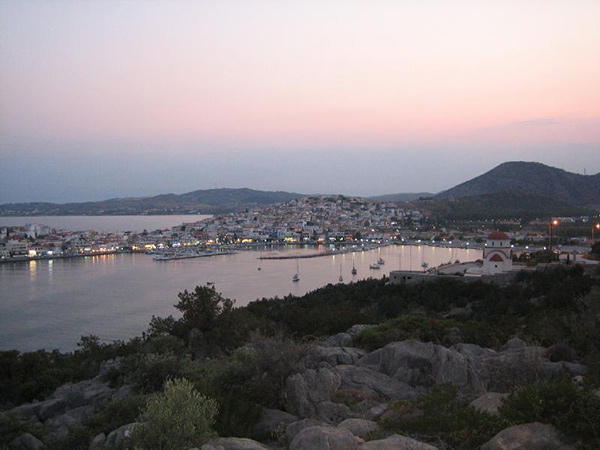My own olive grove
“MELL-ELAION”, our extra virgin olive oil, is produced from the varieties “Manaki” and “Koroneiki”. The olive groves are situated in the plain, semi-mountainous and mountainous areas of Thermissia Argolidos.
Ermionida
Ermionida is a coastal area featuring lovely beaches, beauties of nature, and tourist development. Olive groves, citrus fruit, famed pomegranates, tasty vegetables grow plentifully on those places, whereas fishing boats sail-in with extra fresh fish every day. The climate of the area is known for its mild winter and rainfall, and extensive sunshine. It is precisely this microclimate which is ideal for the cultivation of olive trees and the production of the extra virgin olive oil of Ermionida, which has been certified by the European Union as a Protected Designation of Origin Product (PDO Product), bearing the varietal label “KRANIDI ARGOLIDOS”.
It is the plain, semi-mountainous and mountainous areas of Thermissia which «host» the “Manaki” and “Koroneiki” varietal olive groves, where we produce our extra virgin olive oil “MELL-ELAION”.
.
The geographical profile of Ermionida
Ermionida is situated on the Northern-Eastern part of the Peloponnese, across the islands of Hydra and Spetses. It consists an administrative part of the prefecture of Argolida. In the past, it was a province, namely the Province of Ermionida, but ever since the local government «Capodistrian» reform, this area forms the Municipality of Ermionida, whose main towns are Kranidi and Ermioni. In one of the villages, Thermissia, there is a Venetian namesake castle.
.
The history of the land of Ermionida
In accordance with archaeological evidence, the area has been uninterruptedly inhabited ever since the prehistoric age, that is since 25.000 B.C., and it has had a continuous presence in the overall historic evolution of Greece. The prehistoric cave of “Frachthi”, the most important cave in Europe dating back at this age, is located in this area. During the Mycenaean period, Ermionida was part of the Kingdom of Mycenae. “Polichni of Massitos” thrived at that time, whereas the name of “Ermioni”, participating with 300 hoplites (soldiers) in the campaign against the Persians, is attested on the golden tripod (three-legged vase) dedicated by the Greeks to the Oracle of Delphi for their victory against the Persians. Finally, in 1827, Ermioni hosted the works of the Third National Assembly following the uprising of the Greek nation.

There are more than one versions as to the origin of the name of Ermioni, and by extrapolation of the entire province of Ermionida: according to one of them, Hermioni was the daughter of the King and Queen of Sparta, Menelaus and Helen. According to another, most likely prevailing version, attested by Pausanias, the founder of the city of Ermioni was Hermion (Ermionas), son of Europas, grandson of Foroneos, and nephew of Niovi, Pelasghos and Aghinoras.




